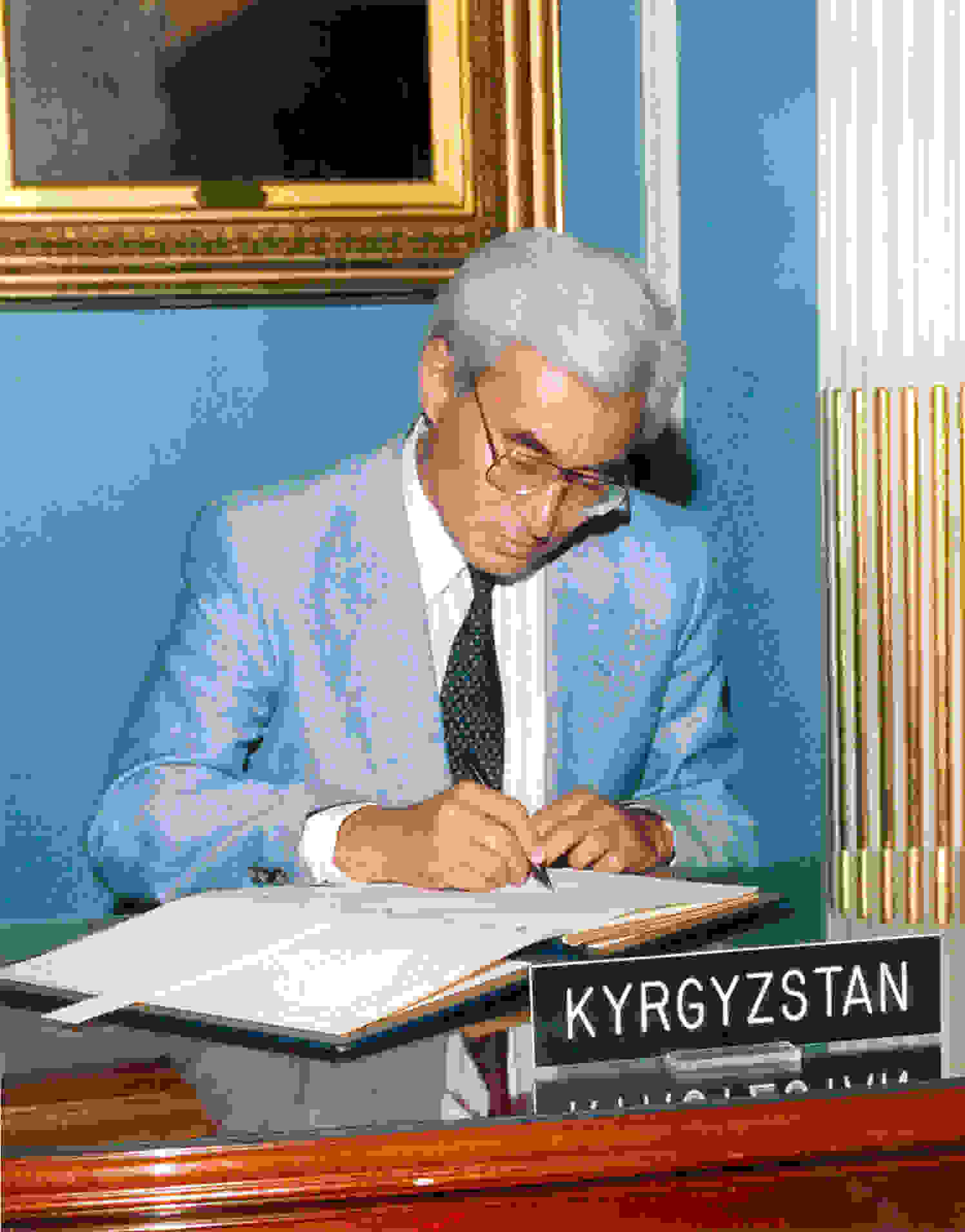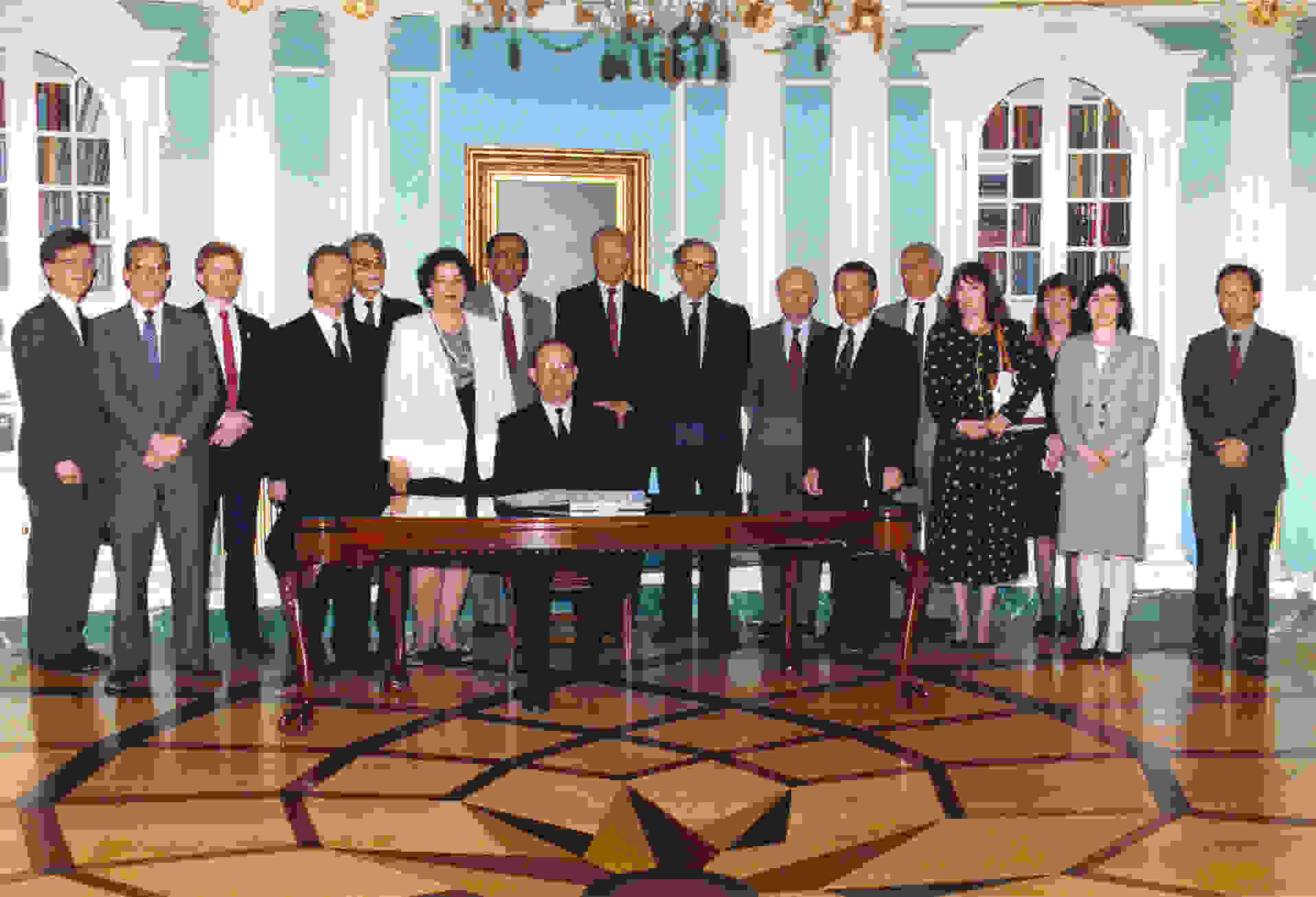World Bank Group Timeline
Post-Soviet states join the World Bank Group
As a result of the dissolution of the Soviet Union in December 1991, the post-Soviet states that emerge as new countries seek membership in the World Bank Group over the next several years.
Resource Gallery

Colloquium on the Former Soviet Union for Executive Directors of the World Bank
Document date: Feb. 29, 1992
The report describes discussions held during the colloquium, including the region's past and current economic situation and a potential role for western countries.

World Bank Annual Report, 1992
Document date: [Sept. 22, 1992
The report includes a chapter on reforms taking place in the former Soviet Union beginning on page 139.

Signing of IBRD Articles of Agreement by Kyrgyzstan
Sept. 18, 1992
His Excellency, Amangeldy Muraliev, minister of economy and finance, signs the IBRD Articles of Agreement on behalf of Kyrgyzstan (1498713; Credit: The World Bank).

Signing of IBRD Articles of Agreement by Lithuania
July 6, 1992
His Excellency Gediminas Vagnorius, prime minister of Lithuania, signs the IBRD Articles of Agreement (1498713; Credit: The World Bank).

Staff announcement -- Creation of European regional vice presidency
Sept. 17, 1991
As a result of the influx of post-Soviet states into the World Bank Group, President Preston announces the creation of what will be called the European and Central Asia vice presidency (1780270).

Memorandum proposing a program for the former Soviet Union
Jan. 14, 1992
The majority of the proposal takes the form of questions to be answered with regard to membership, work program, budget, and staffing and recruitment (1654186).

World Bank Information Briefs -- The Former Soviet Union and the World Bank
Document date: April 1, 1993
The brief summarizes the shares and votes of the 15 countries that formed following the dissolution of the former Soviet Union.

Russia Rehabilitation Project
P008816: Approved Aug. 6, 1992
The project provides foreign exchange to finance imports needed in support of Russia's program of stabilization and economic reform.
